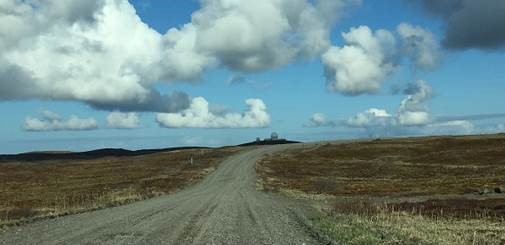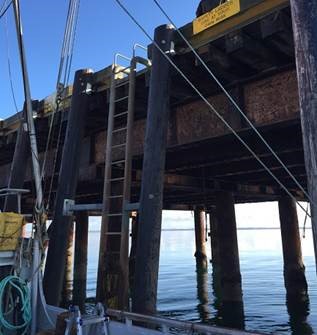Alaska Delegation Introduces Stand-Alone King Cove Legislation
New Measures Continue Effort to Protect the Lives of Almost 1,000 Alaskans
Washington, D.C. – U.S. Sen. Lisa Murkowski, U.S. Sen. Dan Sullivan, and U.S. Rep. Don Young, all R-Alaska, this week introduced identical bills in both chambers of Congress to facilitate a life-saving road for the isolated community of King Cove, Alaska. Without the road, local residents continue to be at the mercy of high winds, dense fog, and strong storms that prevent safe and timely transportation during medical emergencies.
“It has now been more than 30 months since Sec. Jewell callously rejected a life-saving road for King Cove, and local residents have been forced to endure medevac after medevac since then,” Murkowski said. “The Obama administration clearly has no intention of ever helping this community, but we cannot simply leave the health and safety of nearly 1,000 Alaskans to chance. We need to end the needless pain and suffering caused by the status quo before an even greater tragedy occurs, and we can do that by approving this short, simple road.”
“This administration and their allies in Congress -- beholden to environmental special interest groups -- think they know what’s best for Alaska. To value waterfowl above the well-being and safety of King Cove residents is unimaginable, and documents how out of touch this administration is with reality,” Sullivan said. “To completely ignore the federal government’s responsibility to the Aleut community and other citizens of King Cove is shocking, and that is why I am proud to join Sen. Murkowski and Congressman Young in introducing this fair and equitable land transfer legislation.”
“Secretary Jewell’s heartless denial of the Kind Cove road – a willful and deliberate dismissal of human life in the name of wildlife – represents one of the worst government actions I’ve seen in all my years in Congress,” Young said. “Not only has the Administration dismissed its sacred trust responsibility to the Native people of King Cove, they continue to pay lip service in the hopes this issue will go away. I will say now, this issue will not go away until the people of King Cove get the treatment and respect they deserve. Given that the Administration has entrenched itself with some of the most extreme environmental groups, this legislation is an important step in moving forward by doing what Alaskan lawmakers have done best – building a broad coalition in Congress around a commonsense solution for our people.”

The view from an existing road in the Izembek refuge. A radar station is in the background.
King Cove is located between two volcanic mountains near the end of the Alaska Peninsula, about 625 miles southwest of Anchorage. Since December 2013 alone, a total of 46 medevacs – including 17 carried out by the U.S. Coast Guard – have occurred in often-terrible weather conditions that make flying and sailing extremely dangerous for patients and rescuers alike. In the past, plane crashes have led to multiple fatalities that could have been avoided had road transportation been an option.
The new King Cove bills, S. 3204 and H.R. 5777, authorize an equal value land exchange between the State of Alaska and the federal government for a 206-acre land road corridor. The corridor would account for approximately 0.06 percent of the 315,000-acre Izembek National Wildlife Refuge and is needed to facilitate an 11-mile, gravel, one-lane, non-commercial road segment that will connect existing roads on both sides of the refuge. Once the road is complete, King Cove will be reliably linked to nearby Cold Bay, which is home to an all-weather airport featuring the fifth-longest runway in the state.

Sick and injured King Cove residents must sometimes be transported to Cold Bay on fishing boats, and are forced to climb the ladder pictured above regardless of their illness and weather conditions. At times, immobile patients have been hoisted up to the dock via crab pots.
Murkowski is chairman of the Senate Energy and Natural Resources Committee. She held an oversight hearing on King Cove’s continuing lack of reliable emergency medical transportation in April 2016, and as chairman of the Interior-Environment Appropriations Subcommittee has successfully reported language to facilitate a life-saving road in each of the past two years.








